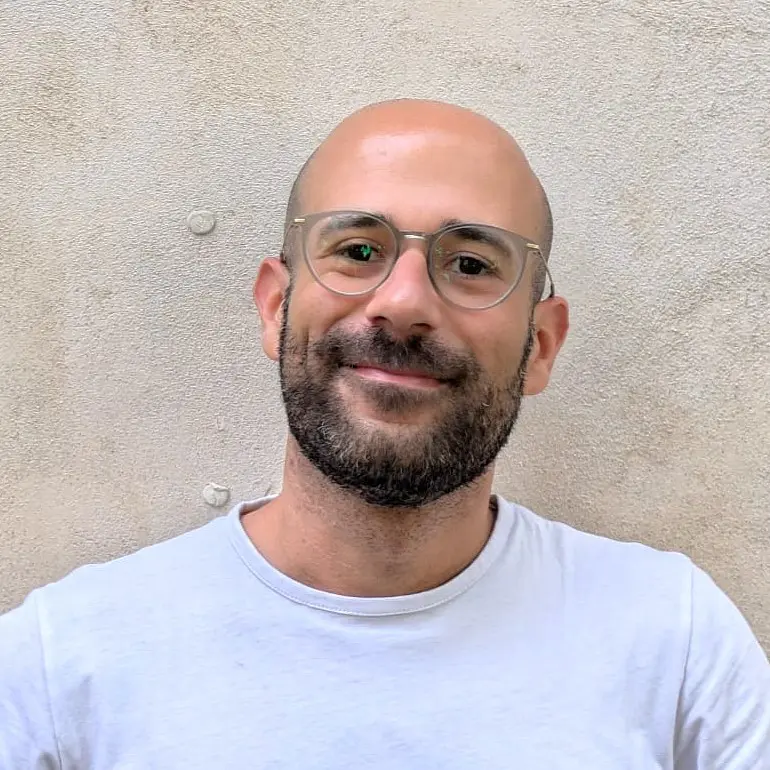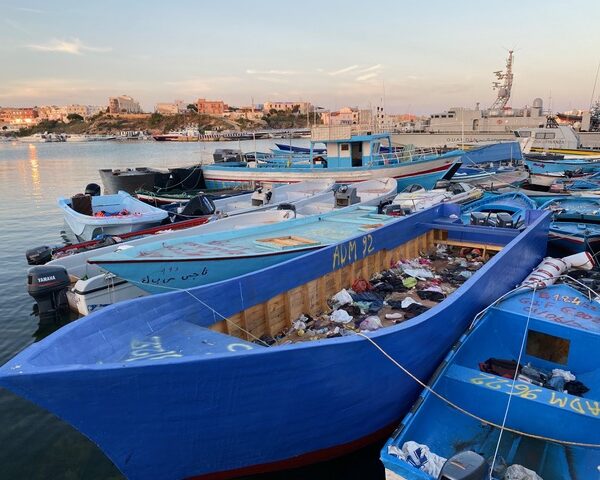Long considered a transit or departure zone, the Mediterranean is now at the heart of global migration dynamics. Between economic, political, symbolic, and social transformations, migrations are becoming more complex, while fueling tensions and fantasies. Sociologist Andrea Calabretta sheds light on these issues through his research on migration paths in Italy and beyond.
This article is a summary of 4 interviews between scientists published in 22-med in October 2024. A dialogue between Bernard Mossé, scientific director of Neede Méditerranée, and Andrea CALABRETTA researcher at the University of Padua (Italy), where he teaches qualitative research methods in sociology. In addition to relationships with the country of origin, he has worked on processes of social inclusion and exclusion affecting migrants and their descendants. The 4 interviews can be found HERE in the 11 languages used on the site.
Migrations are not a novelty. “The world we live in has been built by migrations,” reminds Andrea Calabretta. Italy is a striking example: between 1876 and 1988, nearly 27 million Italians emigrated. Today, the Mediterranean is becoming a region of reception, transit, but also of identity recomposition. Since the 1990s, the fall of the Soviet bloc, the rise of transportation, and digital networks have transformed human mobilities: migration flows no longer follow old patterns. They are globalizing, feminizing, and fragmenting.
Categories to Rethink, Borders to Understand
In the face of the diversity of paths, traditional administrative categories — refugee, economic migrant, family reunification — become inadequate. “Sociologists must avoid reproducing the frameworks of the state,” emphasizes Calabretta, who advocates for a critical reading of the notions imposed by migration policies. The rise of “border studies” illustrates this evolution: the border becomes a selective filter, more than a wall, creating precarious statuses with variable geometry within host societies. The result: a “pyramid of citizenship” in which rights are unevenly distributed.
The Mediterranean, a Laboratory of Migration Tensions
In the Mediterranean, migrations are highly politicized. Since the 1990s, entry conditions into Europe have tightened, transforming the sea into a deadly border. According to the International Organization for Migration, more than 30,000 people have died in ten years attempting to cross it. This closure fuels a discourse of fear, often out of step with reality. South-South migrations, more numerous than those to the North, receive little media coverage. Far from an invasion, current mobilities are complex, motivated by intertwined reasons: economic, familial, climatic, personal.
Exclusion is Also Built from Within
The experience of the Tunisian community in Modena shows how distinctions between “old” and “new” migrants crystallize. In times of crisis, dominant groups reinforce hierarchies, and established migrants may seek to differentiate themselves from the newcomers. This logic of fragmentation is reinforced by public policies that exploit internal divisions. “Even well-integrated, the descendants of migrants can still be perceived as foreigners,” observes Calabretta. The challenge is therefore to recognize the social construction of these categories, rather than essentializing them.
Towards a Slow but Necessary Social Recomposition
Migrations in the Mediterranean reveal tensions but also opportunities for social recomposition. “Change will come slowly, with conflicts, but it is inevitable,” asserts Calabretta. Recognizing the plurality of paths, integrating descendants, and reinterpreting migration policies through the lens of lived realities are the conditions for a more inclusive society. Understanding this complexity is an essential prerequisite for any sustainable public action.
Biographies

Andrea CALABRETTA is a postdoctoral researcher at the University of Padua (Italy), where he teaches qualitative research methods in sociology. He obtained his doctorate in 2023 with a thesis on transnational relations between the Tunisian community in Italy and the country of origin, based on the mobilization of Pierre Bourdieu's theories. In addition to relationships with the country of origin, he has worked on processes of social inclusion and exclusion affecting migrants and their descendants, their work paths in Italian society, and the identity construction processes of migrants.

Bernard Mossé Historian, Research, Education, Training Officer of the NEEDE Méditerranée association. Member of the Scientific Council of the Camp des Milles Foundation – Memory and Education, for which he was the scientific director and coordinator of the UNESCO Chair “Education for Citizenship, Human Sciences, and Convergence of Memories” (Aix-Marseille University / Camp des Milles).

Cover photo: Migrant boats in the port of Lampedusa © Dionigi Albera
Indexing: Library of Mediterranean Knowledge
Migrations in the Mediterranean
Andrea Calabretta – Bernard Mossé
22-med
August 14, 2025
• Migration is a permanent historical phenomenon in the Mediterranean that has become more complex since the 1990s.
• The Mediterranean is a laboratory of migration tensions: politicization, borders, deaths at sea, criminalization.
• Administrative categories are inadequate to the lived reality of paths.
• Migration is never monocausal: it combines economic, climatic, social, and personal reasons.
• Migrants are both actors and victims of social hierarchies, including within their own community.
• Evolution involves a slow but necessary social recomposition.
Tunisia – Italy
#migration #Mediterranean #border #politicization #Tunisia #Italy #sociology #social_hierarchy #complexity #globalization #secondary
